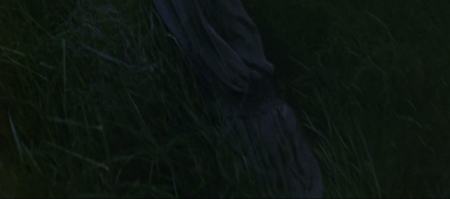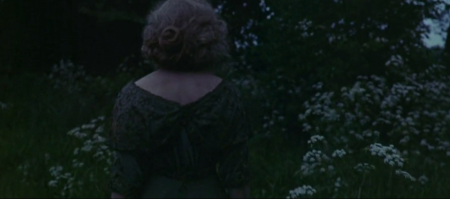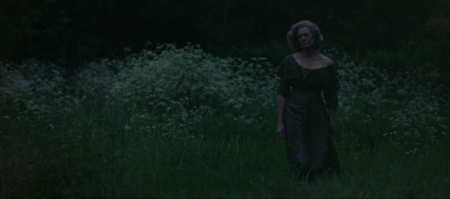They’re arriving so late in the day because Mrs. Wilcox is a nymph who travels at night.



As far as evocative film openings go this lush green opening for Howards End ranks among the top for me. Really, though, many films would be vastly improved if they open with a strolling Vanessa Redgrave. more...
Andrew back with another episode of May Flowers
The idea of the camera following Ruth as she walks restlessly about the woods beside her home at the eponymous Howards End is an immediate key tool to understanding this character. Flowers, and all of nature really, plays a significant role in constructing Ruth Wilcox’s identity in Howards End, both film and novel. In an early moment in the novel wilful Helen Schlegel writes home to sister Meg while staying with the Wilcoxes.
“The house is covered with vine. I looked out earlier, and Mrs. Wilcox was already in the garden. She evidently loves it.”
The novel is so rich with symbolism each time I rewatch the Merchant Ivory film I'm impressed by how cinematic they make it. Motifs and symbols play a major role in Forster’s prose and between Ruth Prawer Jhabvala’s near perfect screenplay, Ivory's direction and Tony Pierce-Roberts's photography the film instantly captures this naturalistic nature in in a fine way ensuring that we first think of Mrs.Wilcox is amidst natural things. Howards End examines an England at crisis, experiencing the growing pains of development. Industrial developments pulls one and naturalistic idealism another. Ruth is a creature of the latter age and Redgrave’s ethereal performance is a perfect fit.

That upward glance at her house with flowers in her hair tells us so much. And as we come to know the other players in this tale of England we are unsurprised that pragmatic Henry Wilcox does not care much for the house, or I suspect the flowers around it. Ruth's placement with flowers is in contrast to more progresssive symbols like the motor car. Vanessa, such a fine performer, makes Ruth pronounce the word "garage" in a later scene as if it's a foreign being.
“The vice of the Pan-German is that it only cares for what it can use.”
“That is the vice of the Imperial mind.”
“The vice of the vulgar mind.”

Ruth's flowers might not surve any expressly utilatarian purpose like Eliza's did yesterday but unlike the Imperial mind Ruth's goddness lies in her ability to understand enjoy the simplicity of nature, even if it's not useful. Notice how in this first conversation Ruth has with Meg her room is inundated with flower and plants – real ones and images on the wall. Closeness to nature, in whatever form, is what marks this character and it's fitting that Vanessa's performance unfolds as organic and natural as the vines she loves so.
It’s why the final moment we see Mrs. Wilcox is such a beautiful one. Margaret comes to see the bedridden Ruth and brings…what else but a bouquet of flowers for this naturalist? Vanessa looks so grateful for the bouquet, even though she already has many other bouquets on her nightstand. But she knows she’s found someone to represent her well. That moment where she has Margaret lean in to put a flower in her hair tells us as much as we need to know.



It’s only a few moments later that dying root signs over her Howards End to Margaret. And in handing this over it was as if not just Ruth Wilcox, but Vanessa Redgrave, was taking a look at Emma Thompson and saying, "Yes, this young woman will be able to take the torch from me and carry on the batallion of great Briton actresses."